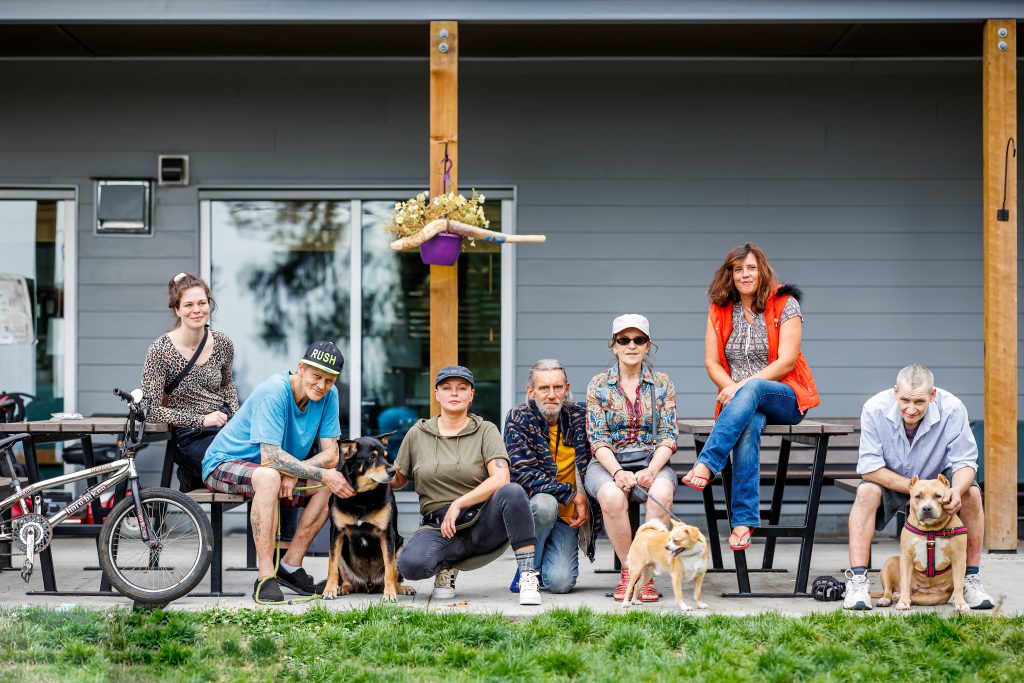Sabina works as a Support Worker in our Supportive Housing program. Learn more about Sabina’s role and what she gets out of working for Lift!
What’s your role at Lift?
My role is a Support Worker. It has a broad definition. We all wear many different hats, and we all bring many different skills to the table.
What does that look like day-to-day?
It is multitasking on a whole new level. We do so much in a day! Our tasks include: working the front desk, meeting individual needs, logging shift notes, communication with community programs and partners, assisting with booking appointments for tenants, formal reporting, building maintenance, cleaning and organizing, preparing and maintaining a steady stock of harm reduction supplies, knowing how to respond to crises and knowing how to respond to overdoses.
I think the most important piece is working with the community partners, because the participants wouldn’t otherwise have access [to care]. Say one of our participants who lives at housing was living alone in an apartment and they didn’t feel like checking in with their doctor, or opening the door for their meds delivery; if they didn’t do any of that then they just wouldn’t get help. But if we’re there, we’re able to help them along to get these things done and if we see problems arise, we can help them along to address them, in a very non-invasive way. But also trying not to create a situation where we’re doing everything. It’s a fine balancing act.
What do you get out of working at Lift?
I’ve never in my life had a job where I’m growing so much within my work and as a person. There’s so much to being a support worker that you can integrate into your own growth as a person: so many things you’re doing, so many skills you’re learning, so many people you’re working with.
And connection is another big one for me. I love people and connection.
What do you want the community to know about the people Lift supports?
We have some very gifted artists at Supportive Housing. There are a couple gentlemen who are phenomenal with woodwork and carving. There are many others who are brilliant painters and artists of different mediums. Musical talent, singing, guitar, poetry. We have metalsmiths, welders, brilliant minds – all human beings with so much to give, who at some point fell on serious hardship.
I think it can be easy to forget that these people didn’t plan to end up where they are. Each of the participants is someone’s child, and they didn’t get born into the world and go, “I’m going to become an “addict”,” or “I’m going to have all this trauma happen to me and then become someone who is seen as difficult.” That’s not what they planned.
People in the community will sometimes criticize the program and say why can’t the participants do these things for themselves, or why can’t they can’t get better or go to rehab for their substance use, or whatever. And they forget about the complexity: because there’s brain injury involved, there’s trauma. We’re there trying to help them live the best quality of life available to them right now.
The problems we’re addressing – mental health, addiction, disconnection, homeless – all these things are complex issues that are unsolvable right at this moment. It’s going to take a lot of time and we’re doing what we can to help people right now.
